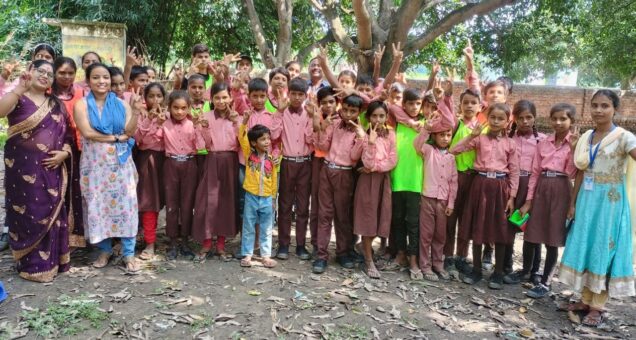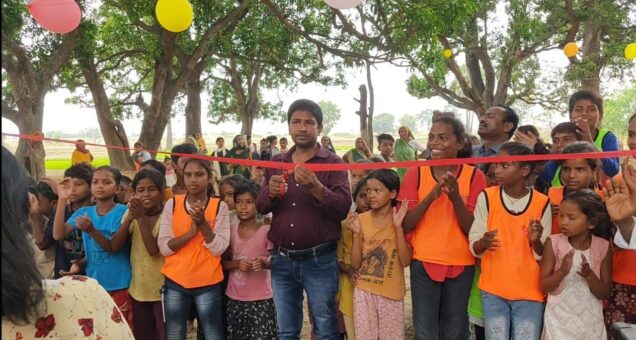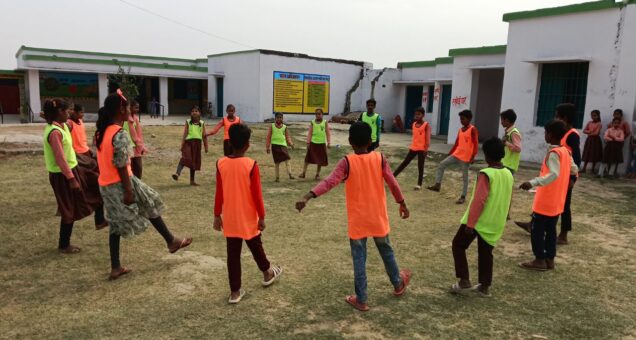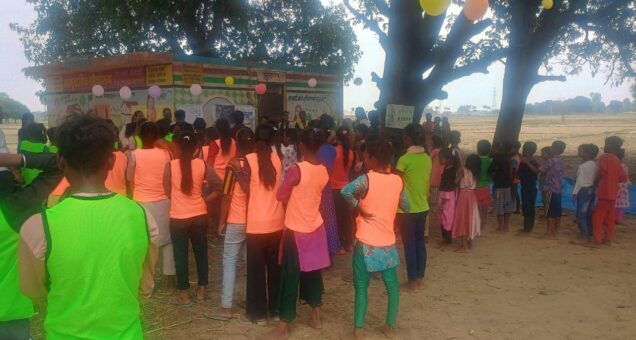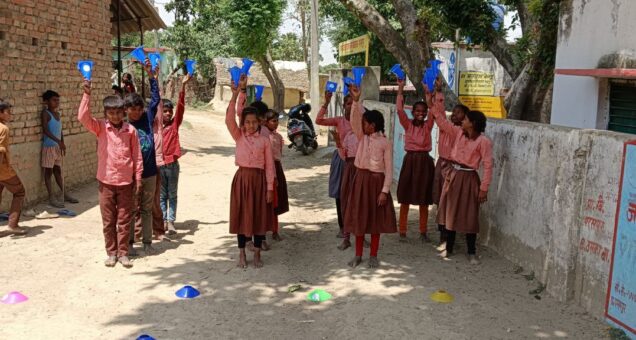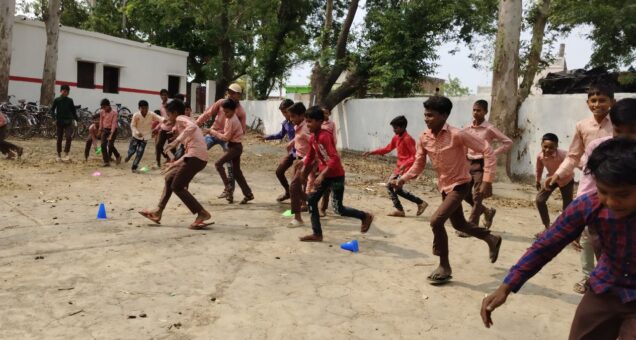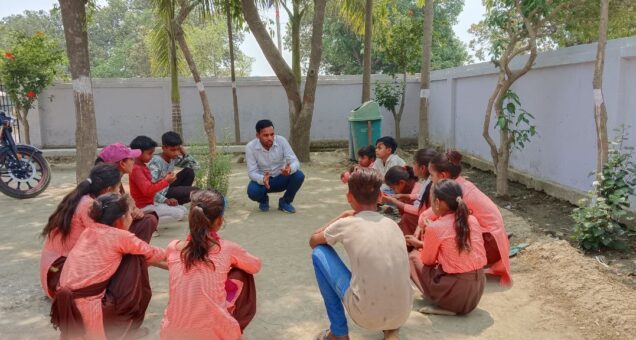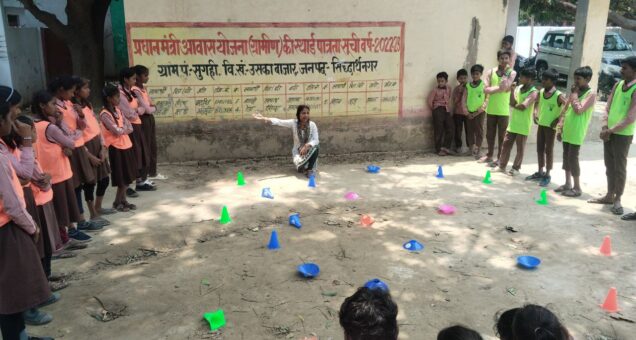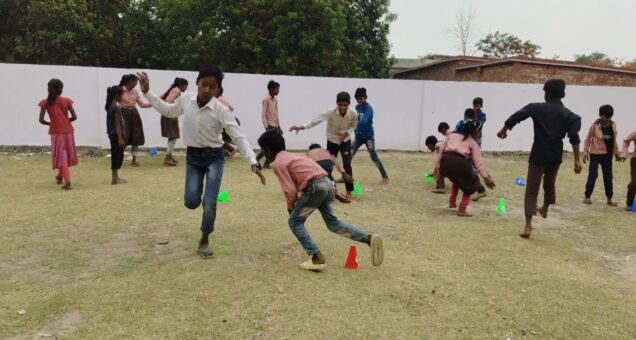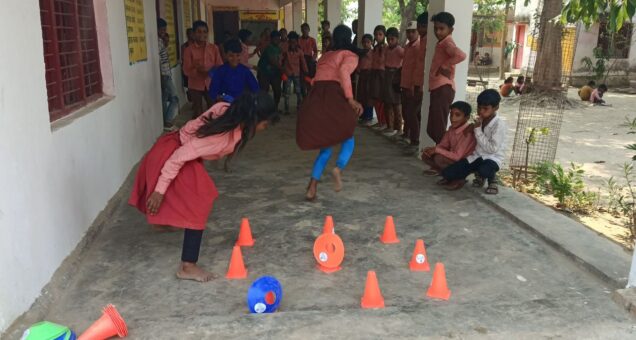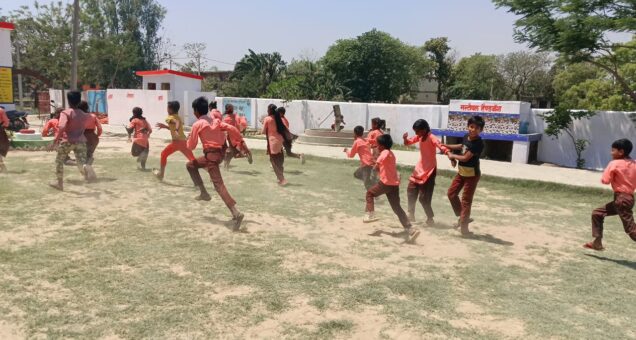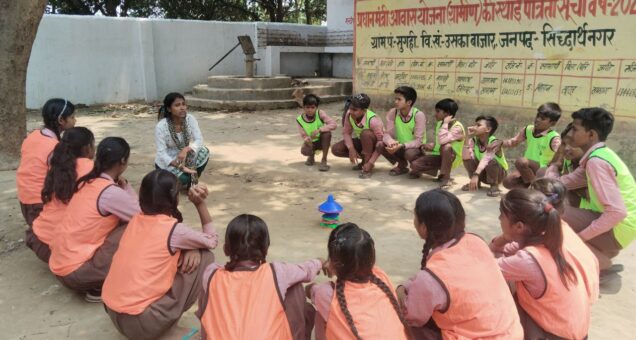Project Chhalaang
Project Chhalaang is an initiative focused on promoting physical literacy and Social Emotional Learning (SEL) among school children, particularly in rural areas. Implemented by Swabhiman Samiti in collaboration with ELMS Sports Foundation, the project aims to enhance children's physical health, develop life skills, improve learning outcomes, and foster girl child participation. The program will be rolled out in 50 schools in the Siddharthnagar district, Uttar Pradesh, focusing on holistic development and creating a sustainable impact on education and student well-being.
Key Highlights:
- Target Area: 50 schools in Siddharthnagar district, Uttar Pradesh.
- Target Group: Students from grades 6-8, with a focus on girl child participation.
- Key Activities:
- Teacher training workshops on physical literacy and SEL.
- Inclusive sports events such as Khel Mela and Khel Utsav.
- Community and parental engagement programs.
SS




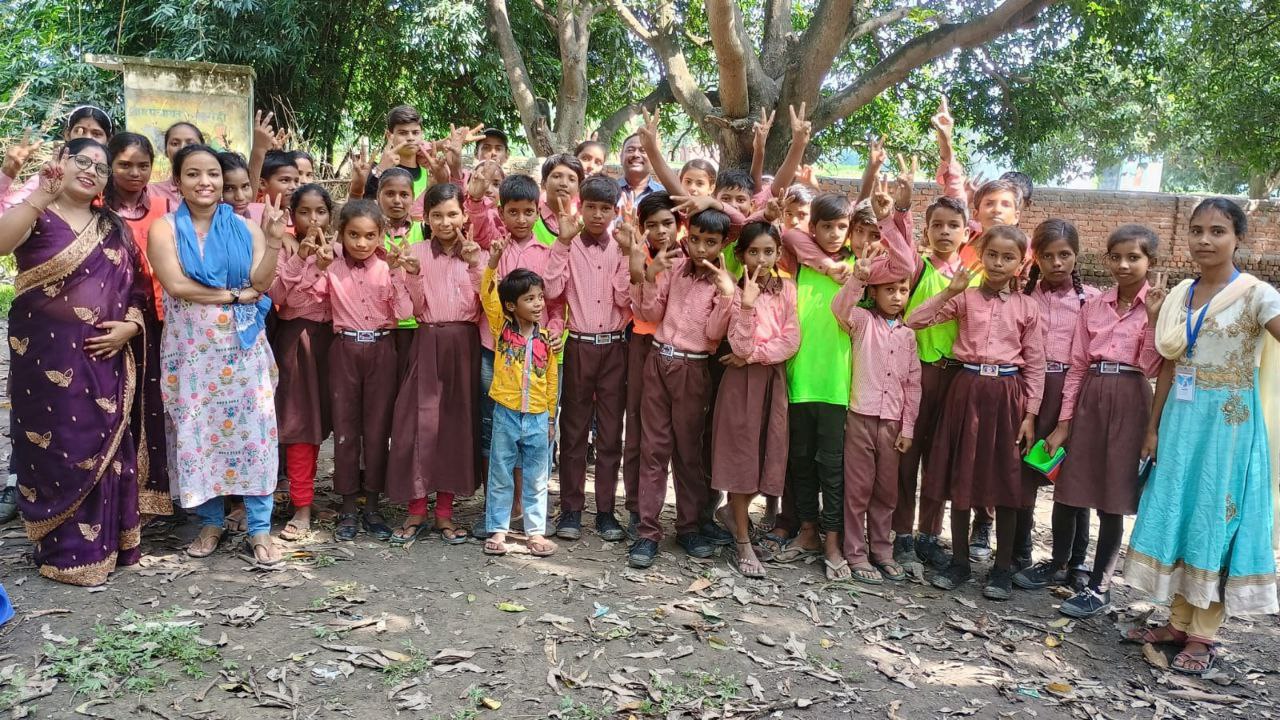

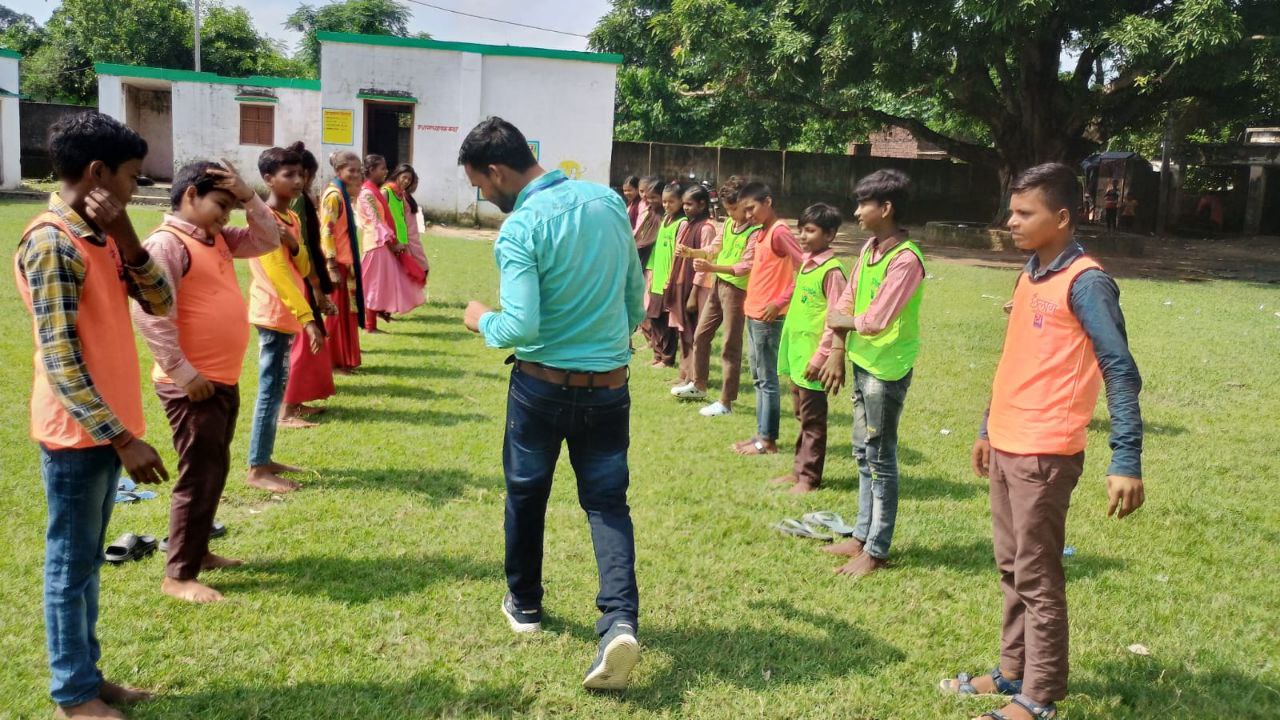
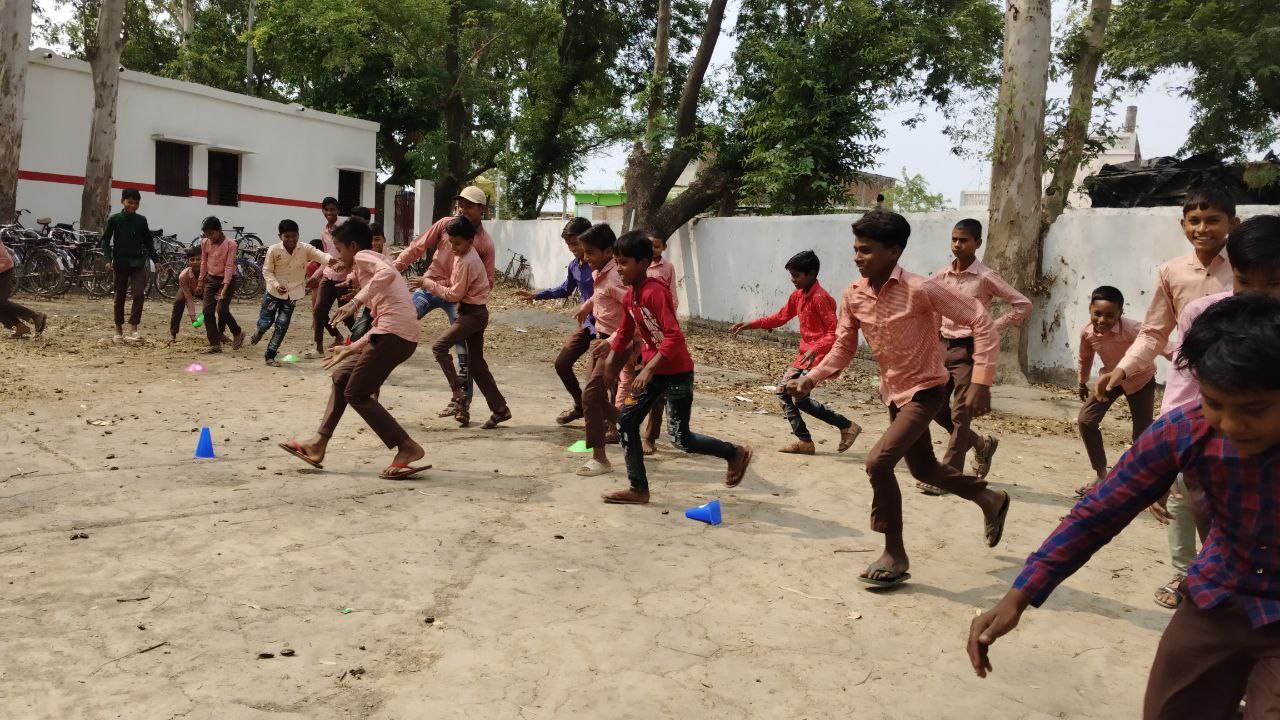
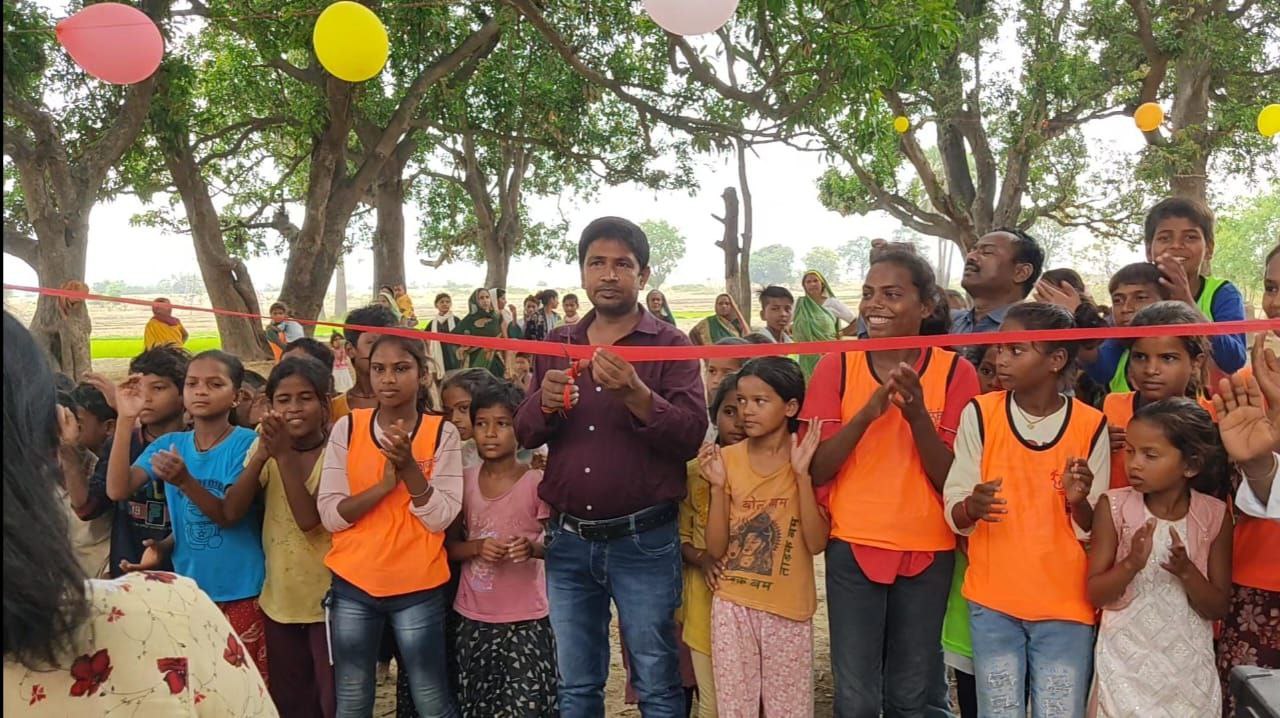

Project Details
- Project Name:
- Project Chhalaang
- Thematic Area:
- Education
- Outcome:
- Students will demonstrate improved physical health, motor skills, and coordination, as measured by pre-and post-program assessments.
Funded By
- Funder Name:
- ELMS Sports Foundation
- Implementing Body:
- Swabhiman Samiti
Implemented By
Work Place
- Place of Work:
- Siddharthnagar District, Uttar Pradesh, India
- Year:
- 2023-24
Project Overview
Project Chhalaang is an initiative aimed at promoting physical literacy and Social Emotional Learning (SEL) among school children, with a primary focus on students in rural areas. The project, implemented by Swabhiman Samiti and in collaboration with ELMS Sports Foundation, seeks to foster essential life skills, improve physical health, and promote emotional well-being in 50 schools located in the Siddharthnagar district, Uttar Pradesh. The program is designed to enhance non-cognitive competencies, such as teamwork, leadership, self-regulation, and emotional intelligence, which are critical to a child’s overall development and academic success.
The project also emphasizes girl child participation in physical activities, aiming to increase school attendance and retention rates by providing engaging and inclusive sports opportunities. Through physical literacy programs, students will learn how to improve their physical health, enhance motor skills, and gain the necessary life skills for personal and academic success. Swabhiman Samiti’s role is pivotal in delivering the core activities of this program, involving continuous community engagement, training of teachers, and ensuring effective implementation of the program across targeted schools.
Objectives
- Promote Physical Literacy: To enhance students’ physical health and develop essential motor skills through physical activities and structured sports programs.
- Foster Social Emotional Learning (SEL): To improve students' emotional intelligence, self-awareness, self-regulation, and interpersonal skills.
- Encourage Girl Child Participation: To actively involve girls in physical education and sports, breaking gender stereotypes and fostering equality.
- Increase School Attendance and Retention: To reduce dropout rates by improving student engagement through physical and social emotional activities.
- Capacity Building of Physical Education Teachers (PETs): To train and equip PETs with the skills necessary to integrate physical literacy and SEL into the school curriculum effectively.
- Enhance Community and Parental Engagement: To engage parents and local communities in supporting physical literacy programs and promoting the value of education, health, and sports.
- Develop Leadership Skills: To empower students, especially girls, by promoting leadership roles in physical education and sports activities.
Background and Rationale
In rural Uttar Pradesh, the challenges faced by school children are multifaceted. High dropout rates, particularly among girls, poor physical health, limited access to recreational activities, and a lack of life skills are common issues that hinder academic and personal growth. These challenges are exacerbated by inadequate physical education infrastructure and a lack of trained teachers to implement effective sports programs.
Physical literacy and social emotional learning are critical for the holistic development of children, especially in rural settings where children face socio-economic disadvantages. By incorporating these into the school curriculum, Project Chhalaang aims to improve the physical health, emotional well-being, and academic performance of children. The initiative aligns with broader educational goals of increasing school attendance, reducing dropout rates, and promoting gender equality by empowering girls to participate in physical activities.
The project is designed to create a ripple effect by building the capacity of teachers and engaging local communities. Through continuous training, mentorship, and community involvement, the project will establish a sustainable and scalable model for physical literacy and SEL, which can be replicated in other rural areas.
Planned Outreach
The project will focus on 50 schools in the Siddharthnagar district and will aim to reach around 2000 students, including both boys and girls from grades 6 to 8.
- Target Area: Siddharthnagar district, Uttar Pradesh, with a specific focus on rural schools.
- Beneficiaries: Approximately 2000 school children, with a focus on girls.
- Program Duration: 3 years.
- Geographical Reach: The project will reach 50 schools across Kushinagar and Maharajganj districts within Siddharthnagar, Uttar Pradesh.
- Community Engagement: The project will also engage local communities, parents, and district authorities to ensure the sustainability and effectiveness of the initiative.
Key Strategies
- School Identification and Selection: Identify 50 schools within the targeted districts that have the necessary infrastructure (playgrounds, basic facilities) and Physical Education Teachers (PETs) who can effectively drive the program.
- Teacher Capacity Building: Conduct comprehensive training workshops for PETs, equipping them with the tools to deliver physical literacy and SEL.
- On-Field Mentorship and Support: Provide regular visits by field coordinators to mentor teachers and ensure that the program is delivered with fidelity.
- Inclusive Sports Events: Organize Khel Mela (inclusive games) and Khel Utsav (competitive sports events) to encourage active participation in physical activities and promote teamwork.
- Parental and Community Involvement: Organize community outreach programs and summer camps to raise awareness about the importance of physical education and SEL.
- Advocacy with Local Authorities: Engage with district education officials to ensure alignment with local educational policies and gain support for the program.
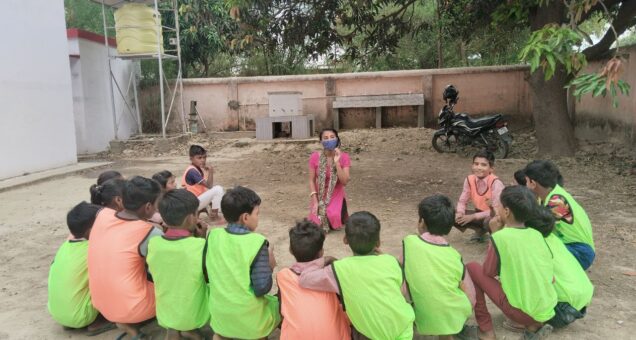
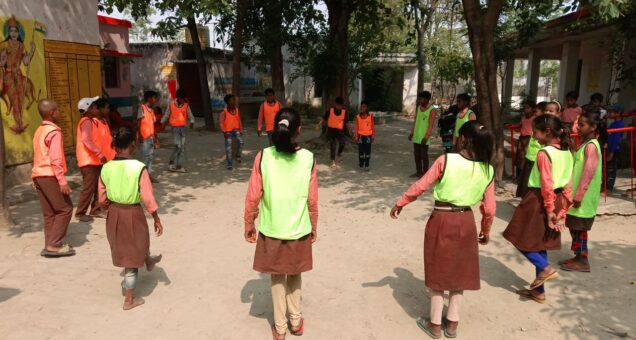
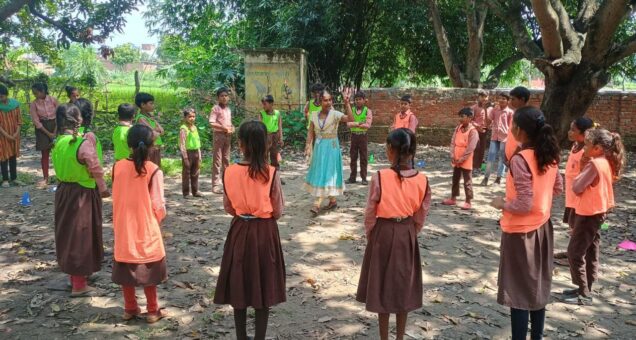
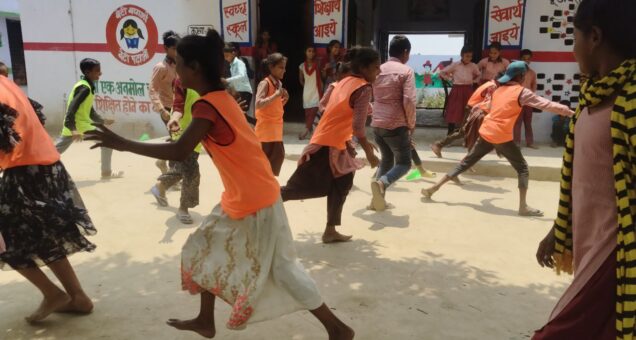
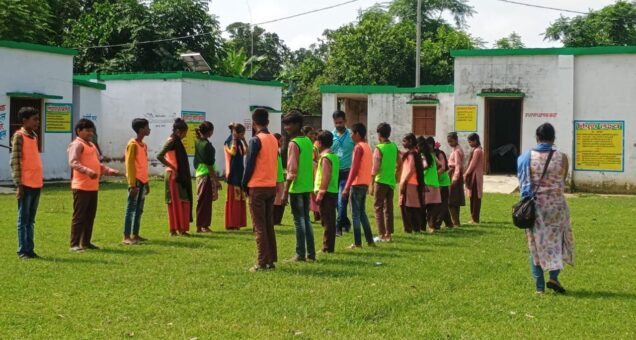
Core Activities
- Training Workshops: Organize 6-day annual workshops to train PETs on integrating physical literacy and SEL into the school curriculum. These workshops will focus on practical teaching tools, activity planning, and strategies for promoting engagement among students.
- On-Field Support: Weekly or bi-weekly visits from field coordinators to schools to provide hands-on support, mentorship, and troubleshooting for PETs. Coordinators will also monitor progress and provide feedback on implementation.
- Baseline and End-Line Assessments: Conduct pre-program baseline surveys to assess students' physical literacy and social emotional competencies. These will be followed by end-line assessments to evaluate the program's impact and effectiveness.
- Inclusive and Competitive Sports Events: Organize events like Khel Mela to encourage participation and foster a sense of community, and Khel Utsav to give students the opportunity to compete in a healthy and supportive environment.
- Community Engagement and Awareness Campaigns: Facilitate meetings with parents and local leaders to ensure they understand the benefits of the program and actively support their children’s participation in physical and sports activities.
- Summer Camps and Sports Clinics: Host summer camps and sports clinics to engage students during school breaks, encouraging continued involvement in sports and physical activities.
- Monitoring and Evaluation: Implement a robust monitoring framework with regular assessments of program progress, teacher performance, and student engagement. This includes the collection of qualitative and quantitative data to evaluate physical literacy, SEL development, and academic outcomes.
Achievements and Outcomes
- Improved Physical Literacy: Students will demonstrate improved physical health, motor skills, and coordination, as measured by pre-and post-program assessments.
- Increased School Retention Rates: The program is expected to reduce dropout rates, especially among girls, by improving engagement through physical and social emotional activities.
- Enhanced Teacher Skills: PETs will be better equipped to teach and manage physical literacy and SEL activities, ensuring the sustainability of the program.
- Stronger Community Engagement: Parental involvement and community support will increase, creating an ecosystem where the value of physical education is recognized and supported.
- Improved Student Leadership: 40 students will be identified as youth leaders, equipped with leadership and organizational skills to mentor other students and organize activities.
- Sustainability: The program will develop a sustainable model for physical literacy and SEL that can be replicated across other rural areas.
Conclusion
Project Chhalaang aims to make a lasting impact on the lives of students, especially girls, in Siddharthnagar district, Uttar Pradesh. By promoting physical literacy, social emotional learning, and community involvement, the project will help improve attendance, retention, and academic performance. Through effective teacher training, community engagement, and inclusive sports events, the initiative will empower children with the skills they need to succeed academically and socially. The success of Project Chhalaang will provide a model for implementing physical literacy programs and SEL initiatives in other rural areas, ensuring long-term positive outcomes for students' overall development.
